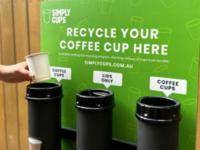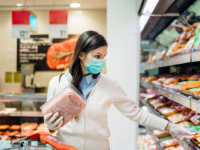Did you know that only 18 per cent of all plastic packaging used in Australia is recycled or composted, while 82 per cent ends up in landfill and our natural environments? (APCO, 2021).
In Australia, plastic pollution is one of the biggest challenges for manufacturer businesses. According to the Australian Bureau of Statistics, in 2018-19, the Australian manufacturing sector generated the most waste among other industries, producing 17 per cent of the total waste (ABS, 2020).
As Australian consumers have become more environmentally conscious in their shopping behaviours, a growing number of companies have taken action to shift into sustainable packaging alternatives. However, as plastic waste keeps accumulating in the environment, this is only the first step of a long journey. Yet, there is increasing consensus from governments, environmental organisations and brands to eliminate packaging pollution. The Australian Packaging Covenant (APCO) and the ANZPAC Plastics Pact are bringing together the whole value chain towards a circular economy for packaging.
Mérieux NutriSciences and ANZPAC Plastics Pact: The right time to embrace eco packaging
Mérieux NutriSciences has just signed the ANZPAC Plastics Pact and pledged to support the industry in developing sustainable packaging materials by offering a wide range of laboratory services. The Plastic Pact is a collaborative network to create programs that will end plastic waste and pollution. All members work toward four national ambitious actionable targets called the 2025 National Packaging Targets.

Any Australian manufacturer can be a member of the plastic pact. The membership provides access to a collaborative framework to shift smoothly to sustainable packaging materials such as certified compostable bags and recyclable packaging.
As consumer demand for sustainable products increases, as shown in a global IBM report, implementing an eco-packaging strategy can only lead to business growth. It seems that there is no better time for Aussie brands to join the plastic pact and shift into more green packaging materials!
How can I shift to sustainable packaging in Australia?
Here are the steps to get started with sustainable packaging materials.
- Define what type of packaging is best for your product.
Different options exist such as compostable, recyclable, recycled, and reusable packaging. Manufacturers need to assess the impact their packaging has on the environment during its entire life cycle.
- Perform laboratory tests according to official standards.
For compostable packaging, what happens at the end of the life cycle of a product needs to be assessed. Mérieux NutriSciences is an accredited laboratory and helps companies in the analytical process to obtain compostable certifications tests. In Australia, the standards to meet the compostable packaging criteria are:
- The AS5810 for the home compostable certification.
- The AS4736 for the industrial compostable certification.
- Get certified.
Locally, the Australian Bioplastics Association (ABA) grants certifications for home compostability and industrial compostability.
- Make your product recognisable by consumers.
The seedling logo from ABA makes compostable packaging such as plastic bags and cutlery identifiable on the Australian market.
What other compostable logos are available on the market?
TÜV Austria’s and DIN CERTCO are internationally recognised to deliver compostable certificates for the American and European markets (e.g. home OK compost logo, industrial TUV compostable logo). Mérieux NutriSciences can provide all packaging testing services required by these standards.
What is the best sustainable certification for my packaging?
To start your sustainable packaging journey, please reach out to Mérieux NutriSciences Australia:
- Marie Daniells, Packaging Business Development Manager (marie.daniells@mxns.com) or
- Visit our website: www.merieuxnutrisciences.com/au
- Find out more about Mérieux NutriSciences compostability testing services.











